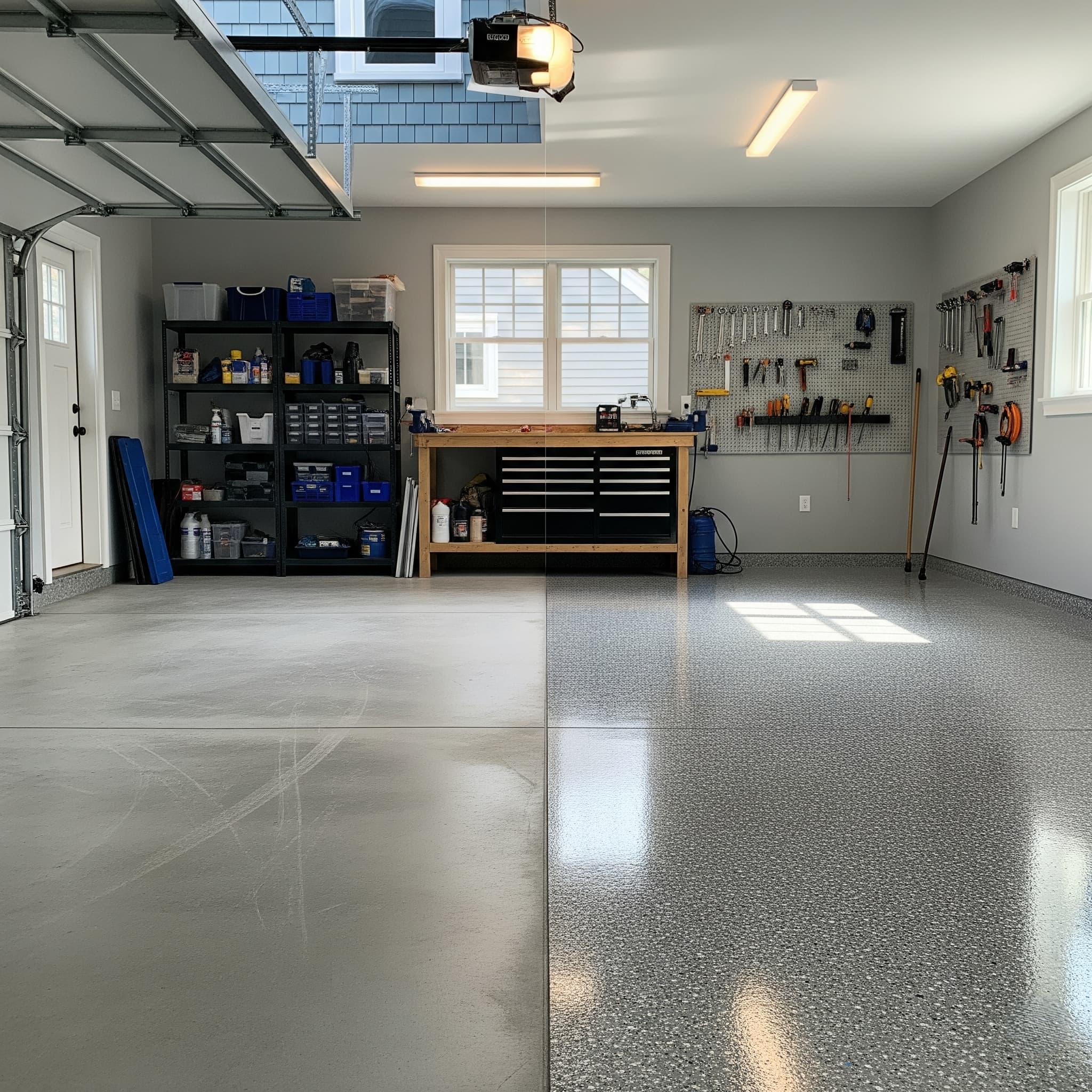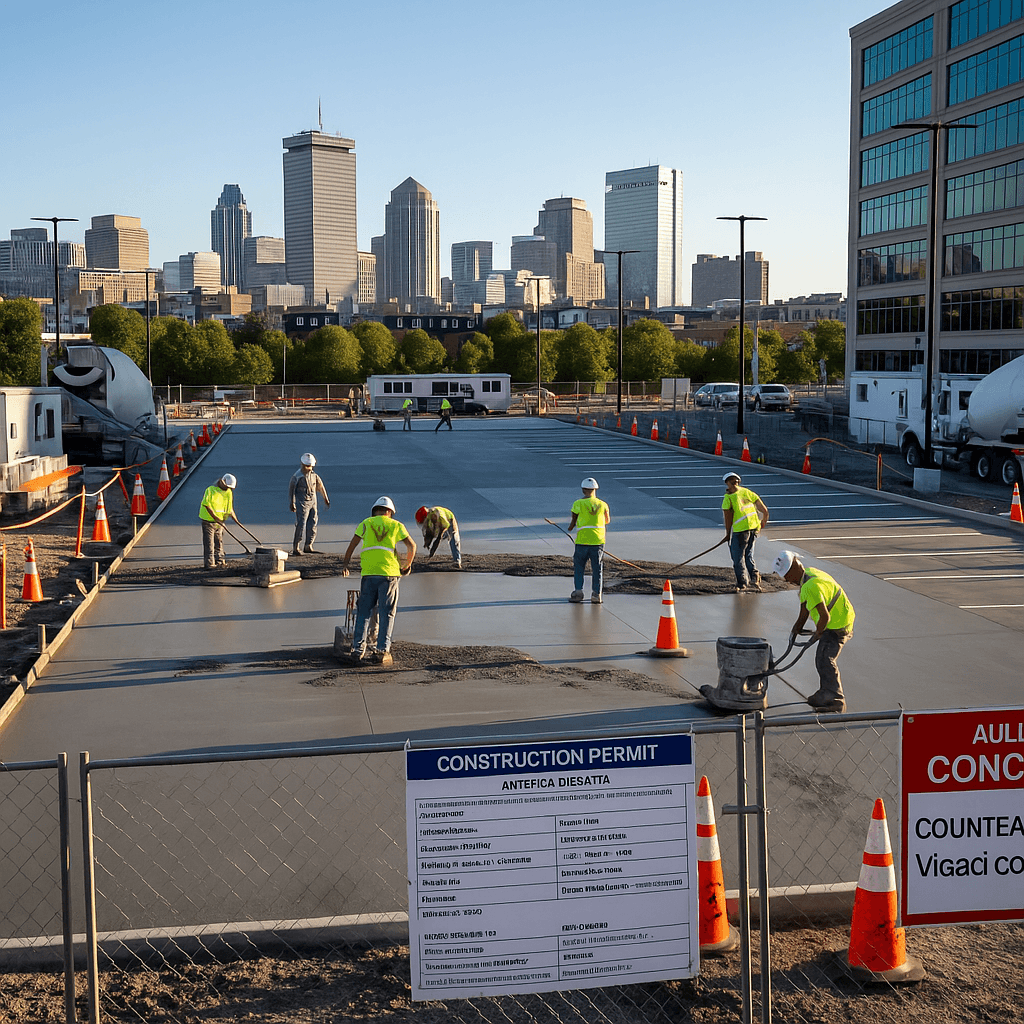
Cost Analysis: Stamped Concrete Patios in Boston Suburbs
Stamped Concrete Patio
When planning a stamped concrete patio at your Boston area home, it is about determining all the price components that add up to your overall spending. These days, homeowners are starting to use more and more of these decorative concrete options as they can withstand the elements, provide a good appearance, and create long-term value as opposed to traditional patio materials. Spending dollars up front in a solid stamped concrete installation will pay back in terms of lower maintenance costs and higher property values in many years of ownership. The extreme weather conditions of Boston (with freeze/thaw cycles) severely affect the material used. Therefore, this type of product needs to be able to endure these conditions without an effect on appearance and structural integrity. Developing a complete understanding of the costs associated with the material will help determine if installing an outdoor area in the way you envision is possible.
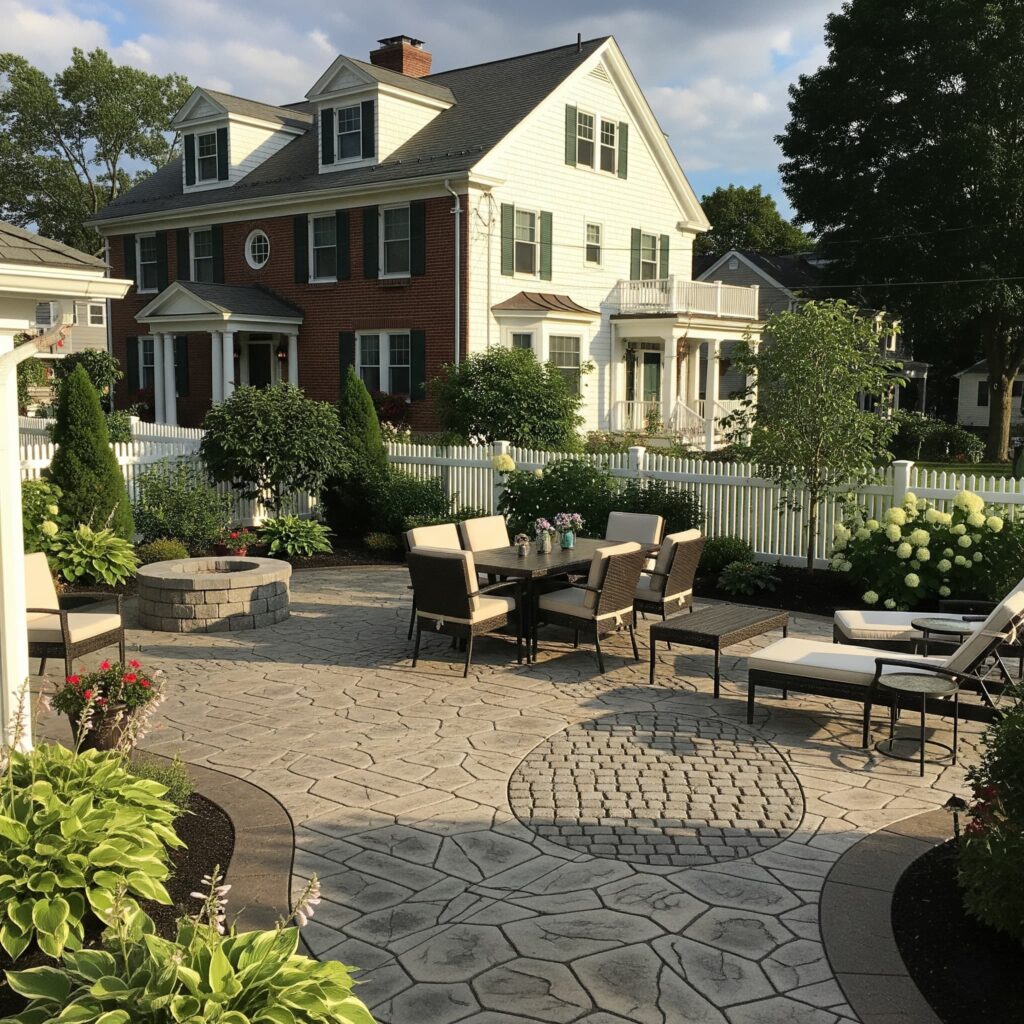
Stamped Concrete Patio Installation in the Boston Suburbs – Average Costs
The cost for installing a stamped concrete patio in the Boston suburbs can vary between $12.00 and $25.00 per square foot, depending upon the complexity of the design, type of finishing materials selected, etc. At the low end of the spectrum would be basic single-color installations, using simple patterns. The high end of the spectrum would be more complex, multi-colored designs with intricate texture details.
Material Costs – Location Specific Pricing
Costs for raw materials vary around the Boston area, depending on what local suppliers have available at the time, as well as seasonal fluctuations in demand. High-performance mixes that are designed for use in New England, which include air entrainment and special additives, will be more expensive than standard mixes, although they provide better durability for long-term use.
Labor Costs – Experience Counts
Labor costs can fluctuate greatly depending on who you choose to hire. More experienced decorative concrete installers will generally charge more than general contractors for similar work, primarily due to their increased level of craftsmanship and attention to detail. In addition, highly skilled artisans have the ability to complete the job quickly and accurately. As such, they generally earn premium wages.
Complexity of Pattern and Design
While simple designs such as ashlar slate or running bond tend to be less expensive overall, when compared to more intricate designs such as European cobblestone or random stone textures, the cost difference can be substantial. While simple designs require less time to complete, the cost of completing more complex designs is substantially greater. Additional time is required to lay out and stamp multiple pattern combinations, as well as to detail and finish the edges.
Additional Charges for Custom Designs, Borders, Medallions, Accent Textures, Etc.
If you are looking to create a unique design with multiple pattern combinations or want to incorporate custom borders, medallions, or accent textures into your stamped concrete patio, be prepared for an additional 30% to 50% in project costs. This can be a considerable increase, depending on the scope of the project and the number of design elements included.
Excavation Needs and Site Preparations – Draining, Frost Depth Rules, Etc.
Excavation needs will depend on several factors, including the current condition of the site, drainage conditions, frost depth rules specific to your area of Massachusetts, and the depth of the excavation needed to accommodate the base materials and the concrete itself. Typically, excavations for a stamped concrete patio will require removing approximately 6 to 8 inches of soil. However, in areas such as Newton and Wellesley, where rocky or clay soils are prevalent, the excavation may require additional equipment and/or labor, resulting in increased costs. In areas with poor drainage, additional base layers or full drainage systems may be necessary to ensure proper water flow and prevent erosion. Such modifications to the original plans will obviously result in increased costs.
Removal of Existing Landscape, Tree Root Cutting, Utility Line Marking – Administrative Tasks to Ensure Safe and Successful Installation
Removing existing landscape, cutting roots, and marking utilities are administrative tasks that must be performed before installation to ensure that the job can be done safely and successfully. Although these tasks may incur additional costs, professional concrete contractors should consider these costs when preparing a comprehensive estimate for the project.
Quality Base Materials – Gravel, Stone Dust, Wire Mesh/Fiber Reinforcement
As previously mentioned, quality-based materials such as compacted gravel or stone-dust layers are critical for providing a stable foundation for a stamped concrete patio and for preventing settling and cracking of the finished product. Although quality-based materials (approximately $2–$4 per sq ft) may seem expensive, they will help ensure the longevity of the finished product.
Reinforcement Systems – Wire Mesh or Fiber
Reinforcement systems (wire mesh or fiber) can add $1–$2 per sq ft to the total cost of materials. However, they will significantly improve the structural integrity of the finished product and its resistance to cracking. Due to the harsh winters and extreme temperatures in the Boston area, these reinforcement systems are highly recommended.
Color Hardener – Integral Color Systems
Integral color systems are priced approximately $2–$5 per sq ft, depending on the intensity of the color and the amount of color needed. Neutral earth tones and shades are generally less expensive than vibrant colors or custom color matches. Color hardeners can provide a more durable finish and deeper color selection; however, they will add $3–$6 per sq ft to the total cost of materials. These color hardeners are ideal for heavy-use areas or in areas subject to extreme weather conditions.
Antiquing Releases and Accent Colors
To create the appearance of real stone or brick, antiquing releases and accent colors can be applied to the finished product. However, these products require specialized application techniques and additional materials, and will add $2–$4 per sq ft to the total cost of the project.
Concrete Sealers and Protective Coatings – Durability and Maintenance
High-quality concrete sealers can protect the finished product from stains caused by moisture and other contaminants, and can help prevent deterioration caused by freeze-thaw cycles. Additionally, sealers can prevent color loss caused by prolonged exposure to sunlight. Premium-quality sealers can cost anywhere from $1–$3 per sq ft, and while they may appear to be a luxury item, they can extend the lifespan of the finished product and maintain its appearance for years to come.
Anti-Slip Additives
Anti-slip additives can be incorporated into the sealer coating to provide traction on slippery surfaces. This can be particularly important in areas prone to moisture accumulation, such as pool decks or areas surrounding spas. Anti-slip additives do not significantly impact the cost of the sealer coating and can provide a safer and more functional environment for homeowners.
Labor Costs and Regional Price Fluctuations – Affluent Communities, Distance to Suppliers, Permits, Etc.
Labor costs can fluctuate greatly depending on the region, demand, competition, experience, and skill level of the installer. Affluent communities such as Brookline and Cambridge tend to pay more for labor, as homeowners expect a certain level of quality and service. When considering the distance to suppliers, remote locations may incur additional costs related to transportation, special equipment, or delivery services. Permits may vary in cost depending on the jurisdiction, and additional inspections or engineering reviews may be required, increasing administrative costs.
Seasonal Price Fluctuations – Demand, Weather Delays, Etc.
Spring is the most popular season for outdoor renovations, and as such, demand for contractors is extremely high. During peak season, contractors often book months in advance and may quote higher prices due to the demand for their services. Conversely, fall is a slower season, allowing homeowners to potentially negotiate lower prices. However, weather-related delays during the installation process can incur additional costs, including mobilization fees or extended timelines.
Economies of Scale – Larger Projects = Lower Costs Per Square Foot
Due to economies of scale, larger stamped concrete patio projects generally receive lower costs per square foot on materials, equipment, and labor. When a project exceeds 500 square feet, contractors can typically pass along the benefits of efficiency and economies of scale to homeowners.
Minimum Charges – Small Projects = Higher Prices Per Square Foot
Smaller stamped concrete patio projects often require minimum charges from contractors to compensate for the time and effort involved in mobilizing equipment and personnel. These minimum charges typically range from $2,500 to $4,000, regardless of the size of the patio.
Combining Multiple Outdoor Projects – Economical Solutions
By combining multiple outdoor projects such as driveways, sidewalks, and patio areas, homeowners can benefit from economical solutions. By sharing the cost of mobilization and purchasing materials in bulk, homeowners can realize significant cost savings. In contrast, breaking down large-scale outdoor renovation projects into smaller, separate projects can result in higher overall costs.
Landscaping Design – Coordination with Installation Process
Landscaping design can have an impact on project costs and timing. Careful coordination of the landscaping design with the installation process can help avoid unnecessary delays and minimize potential damage to existing or newly installed landscaping features.
Edging Treatments, Planters, and Integrated Seating Elements – Increased Cost Due to Added Labor and Materials
Adding edge treatments, planters, or integrated seating elements to a stamped concrete patio can increase the cost of materials and labor. However, these added elements can also enhance the overall functionality and aesthetic appeal of the patio.
Annual Maintenance Costs for Stamped Concrete Patios
The annual maintenance costs for a stamped concrete patio can vary depending on the size of the patio and the availability of maintenance services in your area. On average, homeowners can expect to spend between $200 and $500 annually for regular cleaning and occasional sealing applications to maintain the appearance and extend the lifespan of the finished product.
Long-Term Value and Return on Investment
A well-installed stamped concrete patio can provide a homeowner with 20 to 30 years of maintenance-free use. Depending on the location, climate, and usage, a well-designed and well-maintained stamped concrete patio can add significant value to a property and can provide a strong return on investment.
Sustainability and Energy-Efficiency Benefits
Lighter-colored stamped concrete surfaces can reduce heat absorption and reflectivity, thereby reducing cooling costs and contributing to a homeowner’s energy-efficiency and environmental sustainability goals.
Stormwater Management – Permeable Stamped Concrete Options
In addition to energy-efficiency, permeable stamped concrete options can also assist with stormwater management. These systems allow rainwater to infiltrate the ground beneath the patio while maintaining the decorative appearance of the finished product. While these systems may be more expensive initially, they may qualify homeowners for municipal incentives or reduced stormwater fees.
Contractor Selection and Quality Guarantees
When selecting a contractor to perform a stamped concrete patio installation, homeowners should consider not only the contractor’s experience and reputation, but also the quality of the materials and the warranty offered. A reputable contractor will stand behind the quality of his work and the products he uses.
Insurance and Licenses – Protection for Homeowners
Homeowners should also verify that their chosen contractor has adequate insurance coverage and holds the necessary licenses to operate in the state and locality where the work will be performed. These protections can help mitigate potential financial losses associated with unforeseen events or construction defects.
Financing Options – Breaking Down Large Projects into Manageable Payments
For large-scale stamped concrete patio projects, homeowners may find it beneficial to utilize financing options to break down the project into manageable monthly payments. Many contractors have established relationships with preferred lenders or financing companies, which can simplify the financing process for homeowners.
Timing – Seasonal Fluctuations in Financing Options
Homeowners should also be aware that financing options may become more competitive or restrictive during peak construction seasons (spring-fall), and may be more readily available during off-peak periods (winter). By carefully coordinating their financing and installation schedules, homeowners may be able to secure the best possible terms for their project.
Budget Planning – Unexpected Expenses and Changes
Finally, homeowners should also plan for unexpected expenses or design changes that may arise during the course of the project. Boston Concrete Works provides detailed estimates to account for such expenses, ensuring that the final cost does not exceed the anticipated budget.
LATEST POSTS

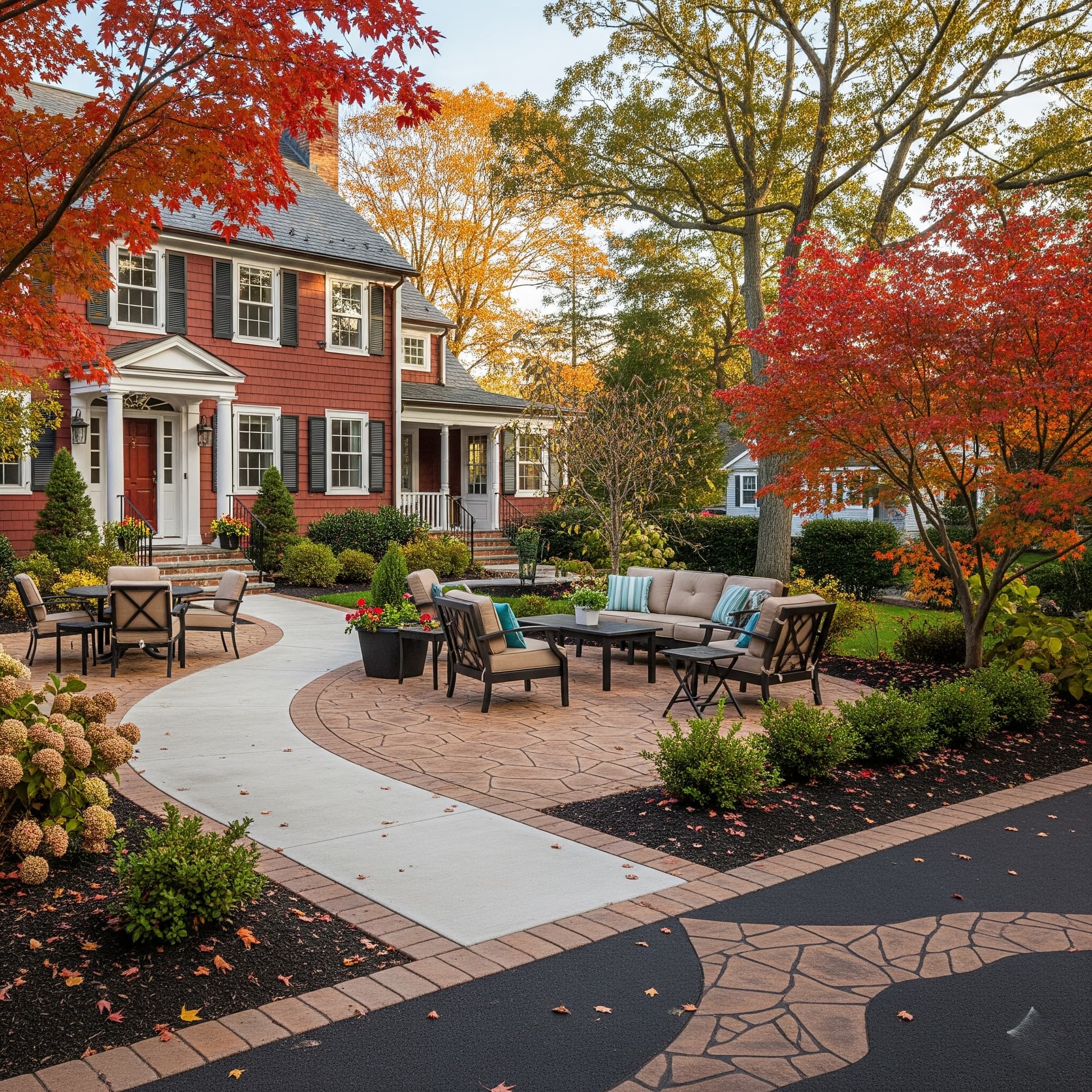
Cost & ROI of Decorative Concrete Upgrades for Boston Homes
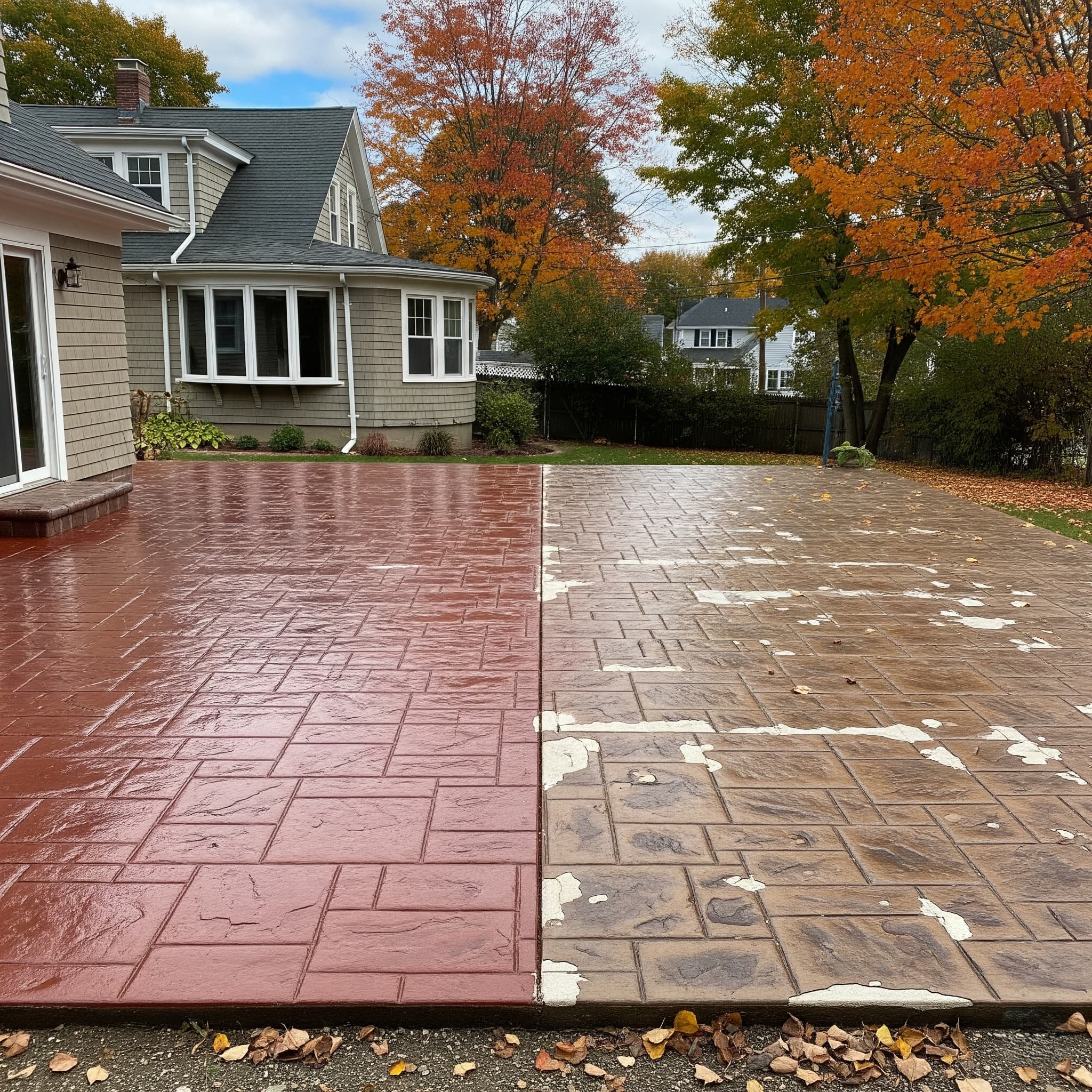
Stamped Concrete Mistakes to Avoid in Wet/New England Climates
